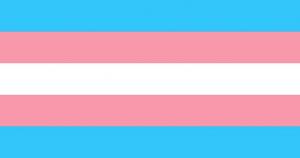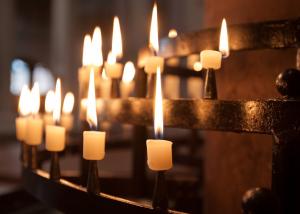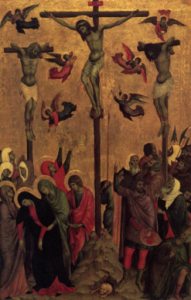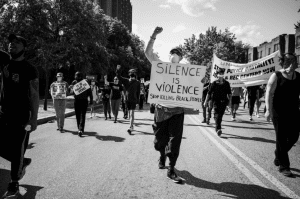Today is Trans Day of Remembrance, which commemorates trans people who’ve died by violence. I went to a brief memorial service for it, with a few friends: an Episcopal priest I know is the pastor of the Church of the Guardian Angel here in Baltimore, and about a dozen people gathered for some Scripture readings and prayers. The style was a lot more modern than I prefer, but it was nice to be with people for it.
2021 has been a bad year for trans people’s safety. The Human Rights Campaign has been tracking violence against trans and non-binary folks since 2013; this has been the deadliest year yet, with forty-seven confirmed murders (overwhelmingly of female-presenting, BIPOC1 trans people). Trans people in general suffer shockingly high rates of violence. According to a survey conducted back in 2015, nearly half of all trans people experience verbal harassment or sexual assault, one in ten are physically attacked, more than half experience domestic abuse, and just shy of two-thirds spend some time homeless.

There are a number of reasons for all this, which I’m not an expert on. At a federal level, discrimination against trans people in employment or housing is illegal; but that has only been true since last June, and state and local laws vary considerably. And losing a job or a house is not only no picnic in itself, but makes it harder to get another job or another place to live, even in places where being openly hostile to trans people isn’t socially acceptable. And just like with gay and lesbian teens, it’s not uncommon for Christian parents to throw their child out of the house on learning that they’re trans—or for them to begin abusing their child, sometimes out of a misguided desire to “fix” them, prompting the child to run away. LGBTQ people in general form an alarmingly high amount of homeless youth, anywhere from twenty to forty percent, which is four to eight times the proportion of LGBTQ people in the general populace.
A lot of trans people, thanks to these dangers and difficulties, turn to sex work as a way to, well, eat. And sex work is no safer for a trans person than it is for anybody else—if anything, it’s riskier still. Besides violence at the hands of parents or partners, a lot of trans people experience violence at the hands of customers.
As I said, the service that I went to was Episcopal. I would have been happy to attend a Catholic service in commemoration of trans victims of violence; but as far as I know, there wasn’t one.

Most Catholics think about this primarily through the lenses of doctrine, policy, and culture: what will Trans Ideology do to my children? Who will Catholic schools be forced to hire by the Trans Agenda? And so on. This often involves a pretty vague idea of what the Church actually teaches about gender, mostly because the Church’s codified dogma of gender is in fact fairly sparse. Ideas as important as whether the soul has gender or not (which, to me, pretty obviously impinges on trans people) have not been formally settled; the theological status of intersex people seems completely undefined.
But trans people are first and foremost people. Made in God’s image, and precious to him. Precious enough to die for. I see absolutely no hint of that kind of love in the way Catholics talk about trans people. They always want to leap straight to the “Go and sin no more” part, because that sounds good and kind without giving up control. It doesn’t grapple with any hard theological—or scientific—questions. It doesn’t call on us to ask whether we’ve been insensitive, or hurtful, or judged people who are dealing with something we’ve never had to. And it certainly doesn’t acknowledge the fact that there’s a crowd of men standing right there with rocks in their hands, waiting to fling them at the woman they “caught in the very act” while letting the man go. Or, who knows, he might be there in the crowd with a rock in his hand too; it wouldn’t be the first time someone tried to absolve themselves by punishing the object of their lust.
The Catholic Church’s moral credibility is gone. She deserves no better, after the last twenty years. She therefore has two choices: ally herself with some political movement that promises her the power to impose her doctrines and commands by state force; or, accept that her reputation is bankrupt and return her attention to her actual task, which is communicating the love of God to all of creation. Until the love that Catholics have for trans people is so vivid and undeniable that the stereotype of Catholic transphobia evaporates on its own, we have no moral right to say anything else about trans people.

And in the meantime, the least we can do is pray for the dead.
Requiem æternam dona eis Domine: et lux perpetua luceat eis.
Requiescant in pace. Amen. +
1If you haven’t run across this acronym before, it means “Black, Indigenous, and people of color.”












